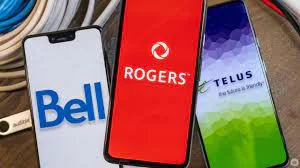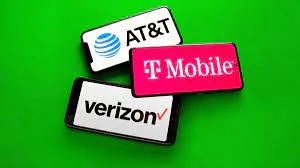Lottery Scam
Introduction of Lottery Scam
Lottery Scam is an excessive and standard scam that can come in numerous bureaucracies, which include unexpected emails, cellphone calls, or mail. The scammer will claim you received a lottery, but there’s no prize. They will then request that you maintain the information exclusively and call a “claims agent” who will supposedly help you get hold of the winnings. However, this is where the scam truly begins. The agent will then request that you pay a charge or switch charge to obtain the winnings; however, you’ve yet to acquire any fee in the long run.
It is important to notice that scammers regularly use the names of proper lottery businesses or businesses to make their schemes seem extra truthful. However, those valid entities are not concerned with fraud. Therefore, if you receive one of these notifications, it’s crucial to be cautious and not divulge non-public statistics or pay fees. It is continually better to be safe than sorry, so constantly affirm any prevailing lottery claims with the actual lottery organization before taking motion. If it sounds too exact to be authentic, it may be. Click here to read more about Lottery Scam.
Definition
Lottery scams trick people into wondering if they’ve won money and asking for non-public records or payment to claim the prize. It’s vital to be cautious and affirm the legitimacy of such claims to avoid economic loss and emotional misery.
Tips to Recognize Lottery Scams
Recognizing lottery scams is vital to avoid falling victim to fraudsters trying to deceive you into giving them cash or non-public records. Here are some fundamental approaches to recognizing lottery scams:
Unsolicited Notifications
Most valid lotteries do not inform winners via unsolicited phone calls, emails, or texts. Be cautious if you are advised that you have won a lottery you did not enter.
Too Good to Be True
It is likely a rip-off if the prize seems too treasured for a lottery you did not participate in. Scammers regularly promise vast sums of money or lavish prizes to lure sufferers.
Immediate Payment Requests
Scammers may additionally insist you pay taxes, fees, or other costs upfront to claim your prize. In a legitimate lottery, any such deductions might come from your winnings and do not require boost payments.
Personal Information Requests
Be cautious if you’re asked to provide personal information such as your SSN, bank account details, or credit card information. Scammers can use this information to steal your identity.
Pressure and Urgency
Scammers create a sense of urgency, claiming you must act immediately to claim your prize. They may say your winnings are time-touchy and could expire quickly.
Lack of Official Information
Suppose the caller or email sender cannot provide professional facts about the lottery, the business enterprise’s call, authentic internet site, and phone info. In that case, this is a signal of a rip-off.
Verification of Winning Numbers
Verify the winning numbers through reliable sources, such as legit lottery websites or government agencies, rather than relying solely on the records provided by the caller.
No Purchase Necessary
Legitimate lotteries do not require buying or paying prices to claim your winnings. If you’re instructed you want to buy something, it’s probably a rip-off.
Overpayment Scam
If you receive a test that exceeds your intended lottery winnings and are asked to ship back the extra, it’s a typical rip-off. The preliminary test may jump, leaving you liable for the entire amount. Click Here Read More about overpayment Scam.
Spelling and Grammar Errors
Scam communications regularly contain spelling and grammar mistakes, as many scammers aren’t local English speakers.
Tips to Avoid Lottery scam
- To participate in a lottery. It is critical to note that if you did not enter the lottery, any notices of triumph need to be omitted.
- Sweepstakes are video games of hazard that don’t require payment or purchase to go into or boom your odds of prevailing. Sending money in advance is illegal.
- Do not fall for scams soliciting fees for prize-related expenses, including taxes, shipping, handling, processing, or insurance.
- There is not no need to provide your bank account number or some other personal facts to participate in a sweepstakes or acquire a prize.
who is authorized to contact you regarding winning
- Only the ones who’ve received D.C. Lottery’s promotional games may contact you. If you haven’t participated, please refrain from sharing any details.
- No overseas entity is authorized to contact you regarding their lottery. Participating in overseas lotteries is unlawful, so you should now not pay or deliver any private records to each person claiming you have gained.
- If a person claims to be a central authority worker, please be cautious of requests concerning lottery or sweepstakes winnings. It is critical to remember that those requests do not observe legitimate government protocols and may imply fraudulent pastimes. Always be cautious and guard your non-public statistics in such conditions.
- Feel free to call if you feel compelled, if the caller doesn’t answer your questions, or if you feel awful about the individual.
Conclusion
In Conclusion, To prevent falling for lottery scams. Remember that legitimate lotteries don’t contact winners without prior communication and never require payment upfront. Stay vigilant, verify offers, and avoid sharing personal information or making payments until you confirm their authenticity through reliable sources. Following these steps protects you from potential fraud and avoids becoming a target for malicious individuals.



Pingback: 419 Scam
Pingback: fake check Scam - SCAM ALERTS
Pingback: Where's my Refund Scam - SCAM ALERTS
Pingback: Romance Scam - SCAM ALERTS
Pingback: Smishing - SCAM ALERTS